Community
Copyright@ Australian Catholic University 1998-2026 | ABN 15 050 192 660 CRICOS registered provider: 00004G | PRV12008
Copyright@ Australian Catholic University 1998-2026 | ABN 15 050 192 660 CRICOS registered provider: 00004G | PRV12008

Atong Deng was only a child when her family of six sought asylum in Australia.
Years of conflict from a civil war in Sudan had raised safety concerns for the family, who are Dinka, the largest ethnic tribe of South Sudan.
On top of this, the conflict had taken the lives of family members, including Atong’s own father.
“We had to pack everything up and find somewhere new to go,” Atong said.
“That would have been challenging especially for someone as young as my mum who had five children, who kept pushing through on survival mode her whole life.
“I honestly have to give her flowers all the time because without her, where would I be?”
For South Sudanese youth like Atong, the process of healing and unpacking the intergenerational trauma brought on by the civil war can take decades.
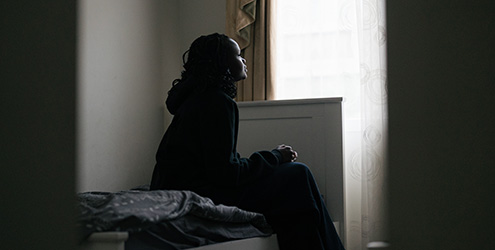
Those who don’t deal with their trauma sadly end up in dire circumstances, including youth crime.
As a Bachelor of Youth Work graduate now working directly with South Sudanese youth through the Centre for Multicultural Youth in Melbourne, Atong feels compelled to rewrite the story for her fellow young Africans.
“South Sudan itself is a freshly new country, so even people back home are still trying to find who they are outside of the rule of Sudan,” Atong said.
“My people have experienced the struggle of not having a stable political party looking after the country, and therefore we are witnessing intergenerational traumas being passed on to the young people.
“And that's where I and people like myself come into the picture. We are trying to stop this intergenerational trauma from happening.
“I’m just one person, but I have to do the best that I can, and I have to believe that I'm making some sort of change.”
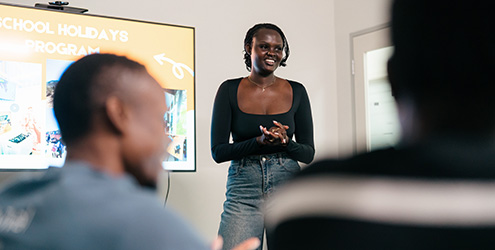
Young people of South Sudanese heritage are overrepresented within the youth justice system, particularly in Victoria.
As a youth worker and a young South Sudanese, Atong is acutely aware of the driving forces behind the increasing rates of African youth crime.
From being conflicted about parental versus social expectations, to the culturally unfamiliar concept of regulating emotions, Atong says life for Australia’s South Sudanese youth is not easy.
“Because our parents are now living in Australia, at times they don't really know how to parent their children in a completely different environment,” Atong said.
“That makes it really challenging because there can be disagreements between what young people want and what parents expect from them.
“On top of this, South Sudanese youth spend the majority of their time in schools trying to be Australian, but in schools they're also facing challenges such as racism or forming friendships with the wrong people and not thinking about the consequences of their actions ten years down the track.
“In some South Sudanese households, you don't grow up knowing how to talk about your feelings, and controlling and regulating your emotions is not the norm, which can unfortunately lead to violent outbursts.”
Atong is determined to be part of the solution, regularly addressing youth crime on TikTok, as well as the underrepresentation of positive role models in the media.
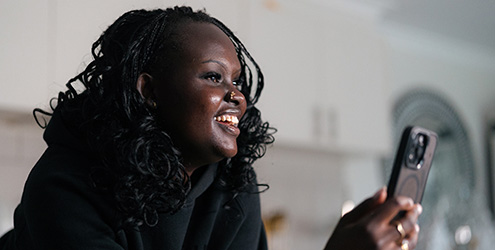
“A lot of people believe that we as a community are very violent, that we have no sense of direction, and that we don't want to immerse ourselves into Australian society, but that's far from the truth,” Atong said.
“A small portion of our young people are doing the wrong thing, but there is an overrepresentation of this group in the media.
“We also have some incredible young people who are so passionate and have so much drive and are just doing such incredible things who are not being talked about.”
On an average week, you won’t find Atong stuck inside an office. Rather, her work takes her all over Melbourne, meeting and supporting South Sudanese youth and their families.
“I really do love it at CMY as no two days are the same,” Atong said.
“I came into the role at 23 so I was the youngest youth worker on the team, and I came in with a lot of energy and a lot of ideas.
“I'm really grateful that I get to work for an organisation that listens to our community because there are some cultural things people may not understand, but we advocate for young people to have their voices heard.”
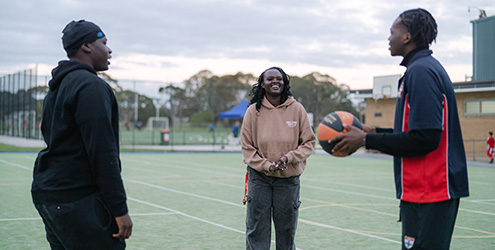
Atong got to know CMY while on placement during her youth work degree at Australian Catholic University (ACU).
Youth work course coordinator, Dr Jen Couch, said the degree focused on supporting hard-to-reach young people with community partners like CMY.
“Our course stands out by incorporating trauma-informed practices and community engagement strategies into its curriculum,” Dr Couch said.
“The course prepares students to understand the unique needs of hard-to-reach young people and develop effective interventions that engage and support them in meaningful ways.
“We also place a strong emphasis on community engagement, teaching students how to build connections within local communities and work collaboratively with various stakeholders, including families, schools, and service providers. This approach fosters a sense of belonging and empowerment, helping young people become active participants in their own communities.”
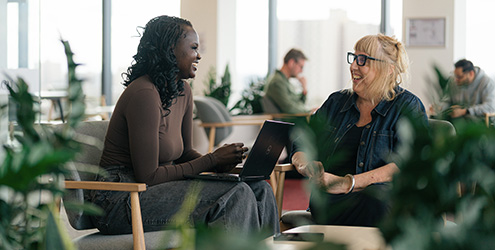
Dr Couch said Atong embodied the qualities of the best youth workers in Australia.
“Atong is an exceptional woman who has a strong awareness of the diverse cultural, social, and economic backgrounds of the young people she works with,” Dr Couch said.
“She demonstrates empathy, actively listens, and provides support in a way that is non-judgmental and validating, helping young people feel heard and understood.”
While Atong is making waves as a youth worker in her community, it wasn’t her first career choice. Rather, she started studying psychological science.
“I always wanted to help people and I really like talking to people, I was never afraid to have conversations with strangers, and I enjoyed understanding who they were as people,” Atong said.
“So I thought I should become a counsellor or a psychologist.”
In her first year she studied the human brain and psyche, but balked at the prospect of having to study statistics.
“They started throwing maths at me and academically I'm not really a maths person, more of an English person, so I knew it was not for me,” Atong admits.
But for her arts units, Atong was studying youth work.
“I really enjoyed learning about young people and was growing a passion for youth work,” she said.
“Then I transitioned to a youth work degree and fell in love with it.”
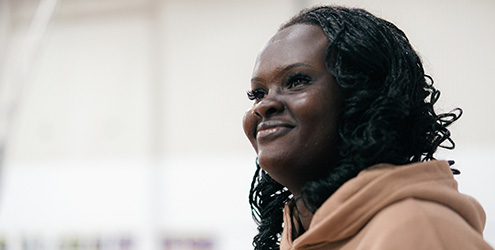
Atong said the opportunities to study abroad and meet her future employers also added to her positive university experience.
“I rave about how great it was at ACU. Not only did I get to study what I wanted, I also got to travel outside of the country and do an immersive program in Fiji. And I did my student placement with CMY which helped me through the transition to working there,” Atong said
“There were so many amazing things that I got to experience at ACU.”
Atong said meeting Dr Couch, who has extensive experience working with young people of refugee backgrounds, was instrumental in helping her through the decision to change career paths.
“She was phenomenal through my transition of smoothly getting me through to youth work, and she really helped me navigate so much of my degree,” Atong said.
“At one stage I went through imposter syndrome, thinking I wasn’t going to be a good enough youth worker. But Jen was incredible, reassuring me to believe in myself and she put so much life into me. Then boom, now I’m a youth worker at CMY.”
Ready for a career making a difference? Explore our courses.
Copyright@ Australian Catholic University 1998-2026 | ABN 15 050 192 660 CRICOS registered provider: 00004G | PRV12008